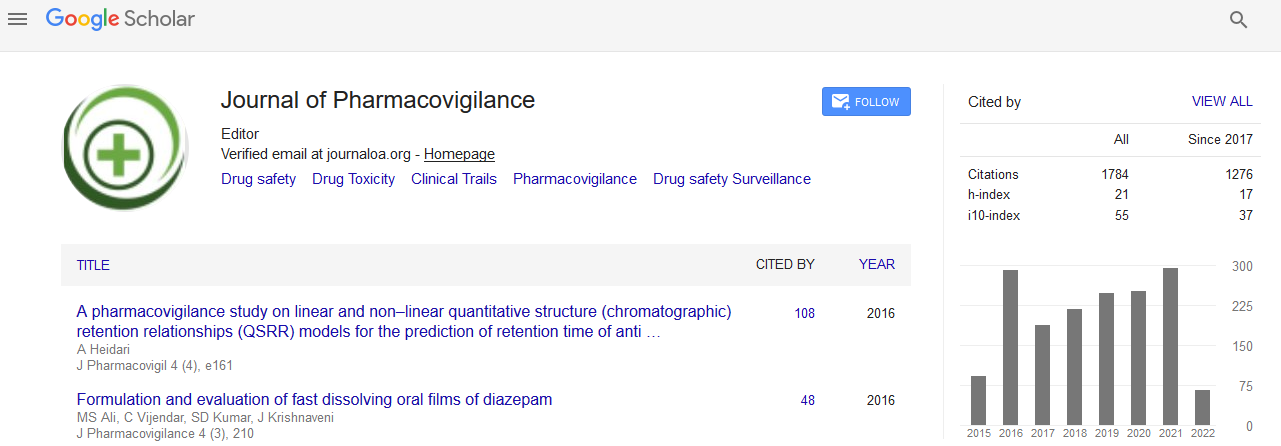Indexed In
- Open J Gate
- JournalTOCs
- The Global Impact Factor (GIF)
- RefSeek
- Hamdard University
- EBSCO A-Z
- OCLC- WorldCat
- Publons
- Euro Pub
- Google Scholar
Useful Links
Share This Page
Journal Flyer

Open Access Journals
- Agri and Aquaculture
- Biochemistry
- Bioinformatics & Systems Biology
- Business & Management
- Chemistry
- Clinical Sciences
- Engineering
- Food & Nutrition
- General Science
- Genetics & Molecular Biology
- Immunology & Microbiology
- Medical Sciences
- Neuroscience & Psychology
- Nursing & Health Care
- Pharmaceutical Sciences
Abstract
Economic Burden of Adverse Drug Reactions among Hospitalized Patients in Eritrea: A Five-month Prospective Analysis of 5848 Patients
Dawit T*, Mulugeta R, Melake T, Iyassu B, Usman A and Semere G
Many countries have been facing multiple disease burdens which have clinical, economic, and social impact; one of which is adverse drug reactions (ADRs). In the United States, for example, the annual financial burden is estimated to be USD 177.4 billion. It is well-recognized that there is a strong linkage between health and economic growth. In Eritrea,healthcare is provided by the Government of the State of Eritrea (GOE) through public hospitals, which is highly subsidized. The health policy of the GOE is ensuring access to healthcare services to all citizens in an equitable and affordable manner guided by the principle of social justice. Despite the efforts underway in the country, Eritrea is still facing newly emerging public health problems like ADRs, whose clinical, economic and social burden need to be determined. In this nationwide study, 18 hospitals (17 public and one private) were included. During the five-month study period, a total of 5,848 patients admitted to the 18 Eritrean hospitals were screened for ADRs. Of the total patients screened, 922 (15.8%) were identified with at least one suspected adverse drug reaction. The average expenditure per patient was found to be ERN 4,766 (equivalent to USD 318) and the overall ADR related economic burden in the five months period was determined to be ERN 4,394,089 (USD 292,939). From this study it was concluded that, the occurrence of ADR was high which had substantial economic burden for the GOE and the patients.
Published Date: 2019-05-01; Received Date: 2018-12-31


